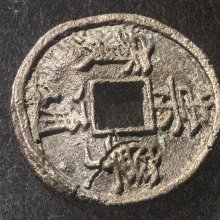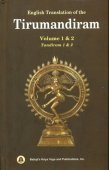Kaci, Kacī: 6 definitions
Introduction:
Kaci means something in Hinduism, Sanskrit, the history of ancient India, Marathi, biology, Tamil. If you want to know the exact meaning, history, etymology or English translation of this term then check out the descriptions on this page. Add your comment or reference to a book if you want to contribute to this summary article.
Alternative spellings of this word include Kachi.
Images (photo gallery)
India history and geography
Source: Institut Français de Pondichéry: The Shaivite legends of KanchipuramKaci (கசி) (in Tamil) refers to Kāśi in Sanskrit, and represents one of the proper nouns mentioned in the Kanchipuranam, which narrates the Shaivite Legends of Kanchipuram—an ancient and sacred district in Tamil Nadu (India). The Kanchipuranam (mentioning Kaci) reminds us that Kanchipuram represents an important seat of Hinduism where Vaishnavism and Shaivism have co-existed since ancient times.

The history of India traces the identification of countries, villages, towns and other regions of India, as well as mythology, zoology, royal dynasties, rulers, tribes, local festivities and traditions and regional languages. Ancient India enjoyed religious freedom and encourages the path of Dharma, a concept common to Buddhism, Hinduism, and Jainism.
Biology (plants and animals)
Source: Google Books: CRC World Dictionary (Regional names)Kaci in Indonesia is the name of a plant defined with Desmodium heterocarpon in various botanical sources. This page contains potential references in Ayurveda, modern medicine, and other folk traditions or local practices It has the synonym Hedysarum siliquosum Burm. f. (among others).
Example references for further research on medicinal uses or toxicity (see latin names for full list):
· Revisio Generum Plantarum (1891)
· Annales Museum Botanicum Lugduno-Batavi (1867)
· Guihaia (1995)
· Natural history (1897)
· Transactions of the Linnean Society of , London. (1931)
· Journal of Japanese Botany (1991)
If you are looking for specific details regarding Kaci, for example side effects, health benefits, extract dosage, chemical composition, pregnancy safety, diet and recipes, have a look at these references.

This sections includes definitions from the five kingdoms of living things: Animals, Plants, Fungi, Protists and Monera. It will include both the official binomial nomenclature (scientific names usually in Latin) as well as regional spellings and variants.
Languages of India and abroad
Marathi-English dictionary
Source: DDSA: The Molesworth Marathi and English Dictionarykacī (कची).—a (kaca! The sound in sounding it.) Split, cracked, having a flaw--a rupee &c.
Marathi is an Indo-European language having over 70 million native speakers people in (predominantly) Maharashtra India. Marathi, like many other Indo-Aryan languages, evolved from early forms of Prakrit, which itself is a subset of Sanskrit, one of the most ancient languages of the world.
Sanskrit dictionary
Source: Cologne Digital Sanskrit Dictionaries: Edgerton Buddhist Hybrid Sanskrit DictionaryKācī (काची).—(?) , pl., adopted by Lévi Mahā-Māyūrī 68 (Kācīṣu, loc.) as name of a people or region, but apparently by his own em.; if I understand him, all his mss. and Chin. and Tibetan translation(s) vary (Kāca, Kāśī, Kāñcī, etc.). Since this form seems un- recorded, it would seem better to have adopted some form supported by at least one authority.
Sanskrit, also spelled संस्कृतम् (saṃskṛtam), is an ancient language of India commonly seen as the grandmother of the Indo-European language family (even English!). Closely allied with Prakrit and Pali, Sanskrit is more exhaustive in both grammar and terms and has the most extensive collection of literature in the world, greatly surpassing its sister-languages Greek and Latin.
Kannada-English dictionary
Source: Alar: Kannada-English corpusKāci (ಕಾಚಿ):—
1) [noun] = ಕಾಚಿಹುಲ್ಲು [kacihullu].
2) [noun] (a contemptuous term) a despicable woman; a wretch.
--- OR ---
Kāci (ಕಾಚಿ):—
1) [noun] the plant Solanum indicum of Solanaceae family; wild Indian brinjal.
2) [noun] its fruit.
3) [noun] the plant Solanum melongena of Solanaceae family.
Kannada is a Dravidian language (as opposed to the Indo-European language family) mainly spoken in the southwestern region of India.
Tamil dictionary
Source: DDSA: University of Madras: Tamil LexiconKaci (கசி) [kacital] 4 intransitive verb [K. kasi.]
1. To ooze out, as moisture from a wall; to spread, as humidity round a dam; ஈரமூறுதல். [iramuruthal.]
2. To perspire, as the hands and feet; வியர்த்தல். உடம்பு கசிகிறது. [viyarthal. udambu kasigirathu.]
3. To melt, as salt; உப்புமுதலி யன இளகுதல். உப்புக் கசிகிறது. [uppumuthali yana ilaguthal. uppug kasigirathu.]
4. To weep; அழுதல். (திவா.) [azhuthal. (thiva.)]
5. To grow tender-hearted; to become compassionate; to relent; நெகிழ்தல். உள்ளக் கசிந்துக [negizhthal. ullag kasinthuga] (மணிமேகலை [manimegalai] 10, 64).
--- OR ---
Kāci (காசி) noun < Kāśī.
1. Benares, the sacred city on the Ganges, one of catta-puri, q.v.; சத்தபுரியுள் ஒன்று. (திவா.) [sathapuriyul onru. (thiva.)]
2. See காசிகண்டம்்குப்பி. (வைத்திய மூலிகை) [kasikkuppi. (vaithiya muligai)]
--- OR ---
Kāci (காசி) noun cf. ajājī. Cumin. See சீரகம். (வைத்திய மலையகராதி) [siragam. (vaithiya malaiyagarathi)]
--- OR ---
Kāci (காசி) noun < Telugu gāsi. Difficulty, straits; சிரமம். பணத்துக்குக் காசியாயிருக்கிறது. [siramam. panathukkug kasiyayirukkirathu.] Madras usage
--- OR ---
Kāci (காசி) noun < காசு³. [kasu³.]
1. A small copper coin; சிறுதாமிரக்காசு. [siruthamirakkasu.] Local usage
2. See காசு³ [kasu³], 9.
--- OR ---
Kaci (கசி) [kacital] 4 intransitive verb To be distressed, troubled; கவலைப்படுதல். (நாநார்த்த.) [kavalaippaduthal. (nagarthathipigai)]
Tamil is an ancient language of India from the Dravidian family spoken by roughly 250 million people mainly in southern India and Sri Lanka.
See also (Relevant definitions)
Starts with (+43): Kaci-k-kollu, Kaci-manimalai, Kacia, Kaciccampa, Kaciccaram, Kaciccempu, Kacidheli, Kacigha, Kacihullu, Kacika, Kacikacceti, Kacikacippu, Kacikai, Kacikam, Kacikkalampakam, Kacikkamalam, Kacikkampu, Kacila, Kacilavanam, Kacilikkirai.
Ends with (+6): Accukaci, Akaci, Avakaci, Bakaci, Cakaci, Cuvacakaci, Gamdukaci, Gamtukaci, Kacakaci, Kakaci, Kantukaci, Karikaci, Kempukaci, Kikkaci, Makaci, Markkaci, Parikaci, Perakkaci, Perkkaci, Pinkaci.
Full-text (+161): Kashi, Kachi, Kaciyarali, Kaciccampa, Kacikacippu, Kac, Kacakaci, Cattapuri, Kaci-k-kollu, Kaccippetu, Purishreshtha, Gantu kaasi hullu, Marble kachi, Karadaa kaasi hullu, Kempu kaasi kanigalu, Kachi kabiam, Kaccirakku, Kacci-ghara, Kasi Sutta, Kasipura.
Relevant text
Search found 53 books and stories containing Kaci, Kaasi, Kachi, Kacī, Kācī, Kāci, Kasi; (plurals include: Kacis, Kaasis, Kachis, Kacīs, Kācīs, Kācis, Kasis). You can also click to the full overview containing English textual excerpts. Below are direct links for the most relevant articles:
Garga Samhita (English) (by Danavir Goswami)
Verse 4.19.120 < [Chapter 19 - A Thousand Names of Srī Yamunā]
Verse 2.2.24 < [Chapter 2 - Description of Girirāja Govardhana’s Birth]
Verse 2.2.49 < [Chapter 2 - Description of Girirāja Govardhana’s Birth]
Mahabharata (English) (by Kisari Mohan Ganguli)
Section CXCIX < [Uluka Dutagamana Parva]
Section IX < [Jambukhanda Nirmana Parva]
Section CLXXXIX < [Uluka Dutagamana Parva]
Kasi < [January – March, 1981]
Religion, Philosophy and the Secular State in < [July – September, 2007]
Marriage at Sixty < [October – December, 1979]
Chaitanya Bhagavata (by Bhumipati Dāsa)
Verse 3.5.569 < [Chapter 5 - The Pastimes of Nityānanda]
Verse 1.9.66 < [Chapter 9 - Nityānanda’s Childhood Pastimes and Travels to Holy Places]
The Catu-Bhanavara-Pali (critical study) (by Moumita Dutta Banik)
(4) Kasi Bharadvaja Sutta < [Chapter 4 - Subject Matter of the Third Bhanavara]
(10) Khandhaparitta Sutta < [Chapter 2 - Subject Matter of the First Bhanavara]
Efficiency of Paritta (Buddhist protecting charms) < [Chapter 1 - Introduction]
The Great Chronicle of Buddhas (by Ven. Mingun Sayadaw)
Part 4 - The Story of Dighavu < [Chapter 27b - The Buddha’s Ninth Vassa at Kosambī]
Chapter 17a - Buddha’s Journey to Kapilavatthu < [Volume 3]
Biography (41): Mogharāja Mahāthera < [Chapter 43 - Forty-one Arahat-Mahatheras and their Respective Etadagga titles]
Related products







